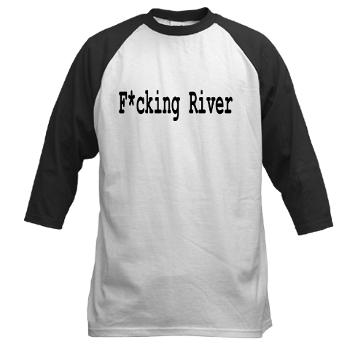Sunday, February 13, 2005
Since I've started playing online, one thing I have always done is take notes on players. Note-taking comes in many different forms, from the old pen-and-paper style notes, to digital notes stored along with each player's name in your online poker program. But what's the best way to take notes? Should we even bother taking notes at all? Where do we draw the line between sufficiently useful notes, and overkill?
These are all things I was thinking about yesterday as I played in my 9 SnG tournaments. I decided to do some investigation, and here's what I came up with.
Most pro's recommend that you maintain a log of notes on your regular opponents. You can use your notes to prepare scouting reports of your opponents, which can help you to prepare for your next encounter with them. Your goal is to observe your opponents and note their strengths and weaknesses, and then use that information to exploit their weaknesses while avoiding entanglement with their strengths.
When I first started playing online, I'd sit down to a table with a notepad and pen. I would write down each player's name and leave some space for notes. I would then proceed to write down every hand each player showed or showed down, along with any relevant observations, such as "called down to river with a busted draw," or "raises pre-flop with suited cards." I would look for patterns, and eventually realized that there were a few generalizations I could make about people's starting hand selections:
"Any ace or face"
"Ax suited" or "Ax"
"Any two suited"
"Suited connectors"
"Blackjack hands" (KQ, QT, JT, KJ, etc)
"ATC" (any two cards)
"Premiums only"
Some people crossed over several categories, but amazingly, I could really put most players into one or a couple of those general categories. It is unbelievable how many "any ace or face" people are out there willing to play K4 just because there's a King in their hand, or how many people will play any ace even with a horrific kicker. Knowing those tendencies can help you to analyze a flop and determine if your hand is likely to beat that of your opponent.
The problem with keeping notes on paper was that there was no easy way to organize them. After playing just a few games, I had a bunch of sheets of paper, and digging through them all at the start of a new game to see if I'd played against any of these people in the past was a logistical nightmare. I had not yet discovered the joys of Party Poker's online note taking system.
A couple months ago, I discovered a program called Poker Tracker. It is only the most useful thing in the world - probably the best online poker investment I will ever make. It allows you to analyze your play as well as your opponents' play via statistics as well as hand replays. I couldn't possibly describe all of the features here, so go check out their web site if you haven't already.
Why would you want such a program? Let's look at the nature of online poker rooms. First of all, there are literally hundreds if not thousands of tables one can choose to sit down and play at. The larger rooms often offer countless choices of tables within each level, aside from the numerous choices of levels at which to play at. With so many choices, the turnover rate of players at any given table is quick. A two hour long session at a ring game table could result in four pages of paper notes, with the number of players that come and go in that time frame. I felt like an overworked secretary, trying to keep up with all of my notes - much less like a poker player.
Enter a program like Poker Tracker. All of a sudden, with a few clicks, I could look up any player in a neatly organized alphabetical list. Then, I could see a list of every known starting hand that player has played - both today, and in previous sessions. Wow! How cool is that?! Poker Tracker became my new best friend!
I stopped taking paper notes on players, and started to rely on Poker Tracker. I started up the program immediately upon sitting down at a table, and set up the auto-import of hand histories feature. This feature causes PT to automatically import new hand information every X number of minutes. I have mine set to 1 minute, so my updates are nearly in real-time. This works automatically with all of the Party affiliates. (For other games, see the PT web site for documentation).
I was very pleased with Poker Tracker and the plethora of information it provided to me about my opponents. It didn't take long, though, for me to notice a shortcoming in my system. When I sat down to a new game or tourney, it was still a pain for me to look up each player in PT to see if I'd played with them before (albeit less of a pain than doing the same thing with paper notes). I needed some way to easily and quickly see who I'd played with in previous games.
For ring games, there are a couple of nice solutions. A program called GameTime+ works as a transparent overlay to your Party skin, and gives an excellent heads-up display of whatever statistics you'd like to see. A similar program is PlayerView. I don't like its interface as well as GT+, but it supposedly is less of a hog when it comes to computer memory and CPU resources. Both programs work in conjunction with Poker Tracker. I've got GameTime+ set up to show what percentage of hands a player voluntarily puts $ into the pot, their pre-flop raise percentage, post-flop aggression factor, how often they go to showdown, and how many hands I have recorded on the player. Very useful stuff to see when you want to classify your opponents as tight or loose, weak or strong, or in possession of maniac qualities.
The downside: GT+ doesn't work with tournaments (though you can use a feature of Poker Tracker to show a second window called "Tourney Time" which displays most of the same information. Not quite as handy as the GT+ heads up display, but still useful).
The other problem with this setup of player analysis tools is that it shows me statistics and a player's overall poker personality, but no indication of their typical starting hands. Within a few clicks, I can gather starting hand information from Poker Tracker, but - it's a few clicks away.
(I sure am greedy, aren't I? I want my data! Right in front of me! And I want it NOW!)
Lucky for me, Party Poker and its skins (like Empire Poker) have a built-in player notes system. With a click, you can store text notes on any player at your table. Players with notes attached to their usernames have a small icon of a yellow post-it note by their names, so you can tell immediately that you've got info on a player. The notes are instantly visible via a mouse-over tool tip, and can be viewed in depth by clicking on the notes icon. The best thing is, the notes are persistent from session to session. Once you record notes on a player, you'll have them forever (or until you delete the notes).
Since discovering the usefulness of the Party Poker online note-taking system, I've been honing my note taking skills. How much information is enough? How much is too much? I want to find a nice balance between taking and maintaining my notes, and preventing the note taking process from becoming a distraction. I think I've found the perfect mix.
My note taking system now consists of 3 parts: first, I keep Poker Tracker running at all times when I play online. Second, I utilize some form of heads-up display to view statistics: either GameTime+ for ring games, or Poker Tracker's Tourney Time window for tournaments. Third, I add player notes to every single player I sit down with on Party/Empire Poker.
The notes I type into the online interface consist of at least a notation on the types of starting hands the person likes to play (see categories above). Players that are extremely fishy will get a notation of the % of pots they voluntarily put money into - a statistic I grab out of Poker Tracker. People over 50% generally get noted. Particularly passive players will get a notation of the percentage of hands they see to showdown - another PT statistic. Players under 20% showdown rates get noted. For the "any two cards" types, I'll add notations of which hands I've seen them play - just to reinforce that they REALLY are an ATC player.
If I notice any playstyle tendencies, I'll note those as well. "Chases flush draws and will call to the river with one." "Chases straights." "Raises any unraised pot." "Folds to a bet larger than the pot." "Likes to slowplay big hands." That sort of thing.
What I end up with is a comprehensive picture of my opponents, which can be built upon table after table, with ease.
My online notes aren't extensive; with Poker Tracker a few clicks away, I have the information I need readily available to me. I've seen other methods of note-taking that go far beyond my notes. I applaud the effort. What you have to do is find a system that both works for you, and is logistically comfortable and non-distracting to you. Having great notes is next to useless if you're so distracted in taking them that you miss opportunities to make plays or make mistakes as a result.
Here's a link to an article on taking more thorough notes online - well suited for players who don't have or don't want to invest in Poker Tracker. Here's a template of this article's author's online notes: (Tricky/Good/Ok/Poor) :: (Tight/Semi-Tight/Loose)/(Maniac/Agg/Solid/Caller/Passive) :: (PSER / NO PS) :: (BLUFFER!)
See the article itself for an explanation of each line. In the case of a template like this, you could easily keep a text file containing this template. Then, upon firing up Party Poker, open your text file and highlight the template and copy it to your computer clipboard. Then, for each new player you encounter, simply paste the template into the player notes area and fill it in as you observe the players.
(Tell descriptor)
Bets: (Draw / Top pair / TP weak kicker / Mid pair / Low pair / trips, etc)
No Bets: (Draw / Top pair / Mid pair / Weak kicker / Low pair, etc)
PR: (Cards) NOPR: (Cards) TRN: (Cards)
p: (Cards)
You may even want to create your own template and keep it in a text file for the same purpose.
Whatever method or combination of methods you choose, it is vital to keep records on your opponents, especially online. With so many player encounters online, it is impossible to remember the nuances in each opponents' play. Miss an important observation on a player, and you could be giving your chips away - needlessly, at that!
Do you have a note taking template or system that works for you? Let me know - drop me an email or a comment. I would love to research this topic further. :)
[Read more...]










I prefer taking notes in PT's GT window over the Party popup. Seems easier in some respects.
I often find myself a bit too busy to take notes while playing unless something amazing happens, but afterwards I may run through my last few sessions one hand at a time and take notes directly in PokerTracker on their play.
I also run PT's auto-import function on a 2 min. interval since the auto-rating can sometimes take more than a minute to complete on my machine.